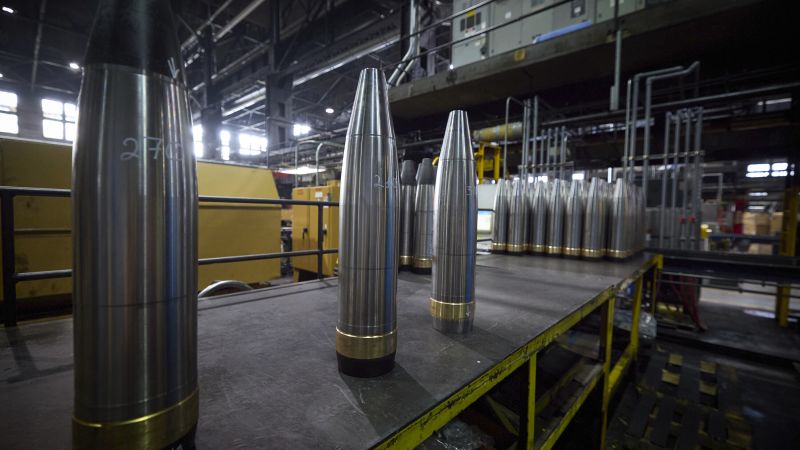
The Pentagon has temporarily paused certain munitions shipments to Ukraine, including crucial air defense missiles, following an extensive review of U.S. military spending and international support. This decision, disclosed by a senior White House official to CNN, marks a significant moment in the ongoing military aid relationship between the United States and Ukraine.
Defense Secretary Pete Hegseth authorized the review, which had been in progress for several months, according to the official. The immediate impact on military support to other nations remains unclear. White House Deputy Press Secretary Anna Kelly stated, “This decision was made to put America’s interests first following a (Department of Defense) review of our nation’s military support and assistance to other countries across the globe.” She further emphasized, “The strength of the United States Armed Forces remains unquestioned — just ask Iran.”
Background and Context
This development comes at a time when the U.S. is reassessing its global military commitments. The review aims to ensure that American defense resources are allocated efficiently, aligning with national security priorities. The decision to pause shipments to Ukraine, a key ally in Eastern Europe, underscores the complex balance the U.S. must maintain between supporting allies and managing its own defense capabilities.
Ukraine has been a significant recipient of U.S. military aid since the annexation of Crimea by Russia in 2014. The assistance has included lethal aid, such as Javelin anti-tank missiles, and non-lethal support. The current pause raises questions about the future of this support, especially as tensions with Russia remain high.
Expert Opinions and Analysis
Military analysts suggest that this pause might be a strategic move to reassess priorities in light of evolving global threats. Dr. Emily Thompson, a defense policy expert at the Center for Strategic and International Studies, noted, “The U.S. is likely recalibrating its defense strategy to address emerging challenges, such as cybersecurity threats and the rise of China as a military power.”
Furthermore, some experts believe that this pause could be a negotiating tactic in broader diplomatic discussions. “The U.S. might be leveraging its military aid to Ukraine as a bargaining chip in international negotiations,” said John Mitchell, a former Pentagon advisor.
Historical Parallels and Implications
This is not the first time the U.S. has paused military aid to reassess its strategic objectives. Historical parallels can be drawn to the Cold War era when aid was often used as a tool to influence geopolitical outcomes. The current situation, however, is complicated by the interconnected nature of modern global politics and the rapid pace of technological advancements in warfare.
The implications of this pause are significant for Ukraine, which relies heavily on U.S. support to bolster its defenses against Russian aggression. The halt in shipments could potentially weaken Ukraine’s defensive posture, although it remains to be seen how long the pause will last and what specific munitions are affected.
Looking Forward
As the situation develops, the U.S. government is expected to provide further clarity on its defense strategy and the future of military aid to Ukraine and other allies. The review process will likely influence upcoming defense budget allocations and could lead to a realignment of U.S. military commitments worldwide.
Meanwhile, Ukraine and other U.S. allies will be closely monitoring the situation, seeking reassurances about continued support. The outcome of this review could have lasting impacts on international relations and the global balance of power.
This story is evolving, and updates are anticipated as more information becomes available from the Department of Defense and other government officials.







